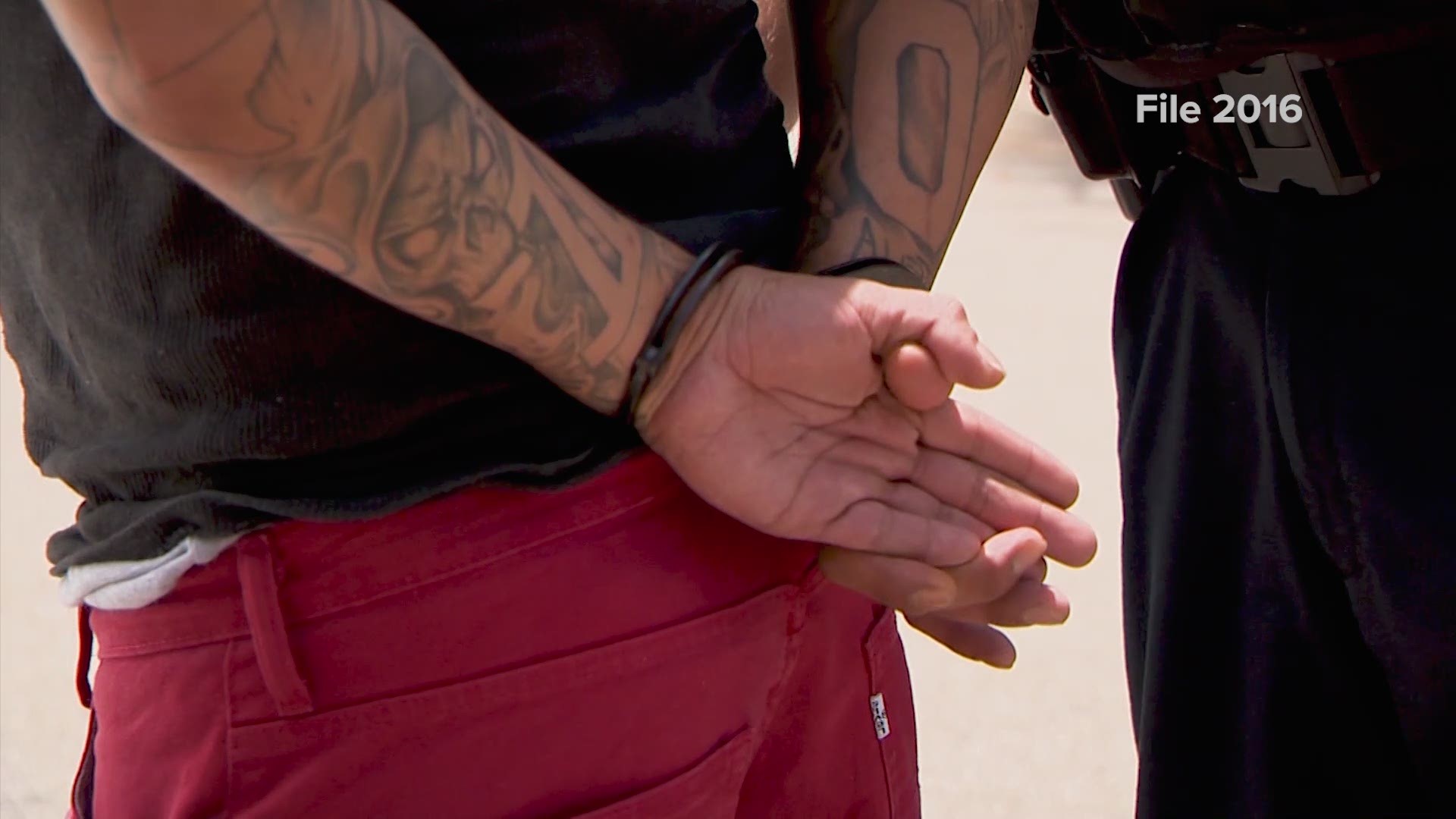AUSTIN, Texas — The Texas Department of Public Safety issues the “Gang Threat Assessment” each year, looking at gangs in the state.
In last year's assessment, DPS analysts said the most significant gangs in Central Texas operate in Austin.
“Gang members with the most arrests for violent crimes in Central Texas belong to Bloods (multiple sets), Crips (multiple sets), Tango Blast (Austin) and Tango Orejon and Texas Mexican Mafia,” the report said. “Bloods (multiple sets) and Tangos (Austin and Orejon) had the highest number of arrests for homicide and sexual assault (inc. aggravated).”
Austin Police document gang members in the city using the state’s Code of Criminal Procedure.
“It’s just spread out throughout the city at this point,” APD Lieutenant Doug Rice said.
Lt. Rice said gangs don’t control neighborhoods in Austin, like you see in other cities around the nation.
“It could start as early as middle school,” Lt. Rice said. “I think it’s an association. They’re familiar with the people they’re there with.”
KVUE told you how APD speaks to students within AISD about the dangers of joining a gang.
“If you compare gang members in Austin to, let’s say, members in Houston, Dallas, San Antonio, we’re nowhere near the same level of gang activity. They’ve got more gangs. They’ve got more violent gangs and more violent gang members. Our gang members do commit crimes, but not necessarily on the same level as those other large cities,” Lt. Rice said.
Lt. Rice said most violent crimes from gang members stay within the organization. Citizens not affiliated with gangs are rarely targeted.
“They commit crimes. They are members of a gang. So, absolutely, they could be dangerous,” Lt. Rice said.
“I remember going to school with shoes with holes in the feet. So, the gang life offered me the money aspect to where, ‘Hey, I can sell drugs and I can make some money for myself,’” Corey Cox said.
Cox was in a Chicago gang.
“I remember leaving home at 15 to live on my own on the streets, realizing that I didn’t have any concrete family. The gangs will give you a false sense of family,” Cox said. “They don’t really care about you. They just care about what you can do for them in that moment.”
Eventually, Cox was rehabilitated by a faith-based organization, Austin Restoration Ministries (ARM).
“Our goal is to restore the drug addict and the drug addict’s family,” Ira Carey, a pastor at ARM, said.
ARM offers a variety of services, including food and education.
They raise money primarily by panhandling and passing out flyers about the ministry.
“We don’t really separate drugs and gangs. It’s all a problem,” Carey said. “We’re going to help everyone.”
KVUE’s Jay Wallis will have more on Austin Restoration Ministries and their outreach Tuesday morning.
Then, Tuesday night, KVUE Defenders’ Erica Proffer will dive deeper into the gangs in Austin, profiling one organization known to work with the Mexican cartel.
Follow Jay Wallis on Twitter @KVUEJayWallis, and Facebook @jaywallisjournalist.
Follow Erica Proffer on Twitter @ericaproffer and Facebook @ericaprofferjournalist.

